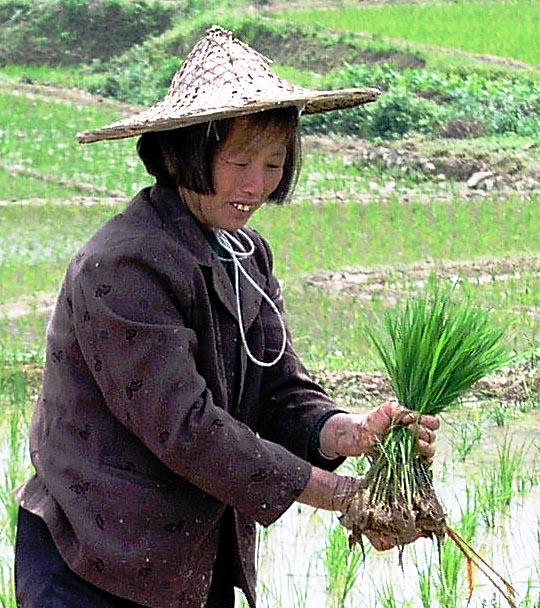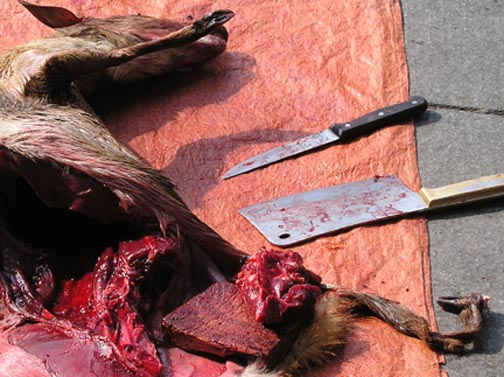A minstrel tuned a lyrical oud singing.
I look up to the tree house balcony and scream to myself to slow down because there is a speed trap up ahead but no one hears me or cares.
Wind - ruh - in Arabic meaning breath and spirit, filters my voice, sounds of oral history away.
My fingers are a sparrow hawk diving on unsuspecting prey.
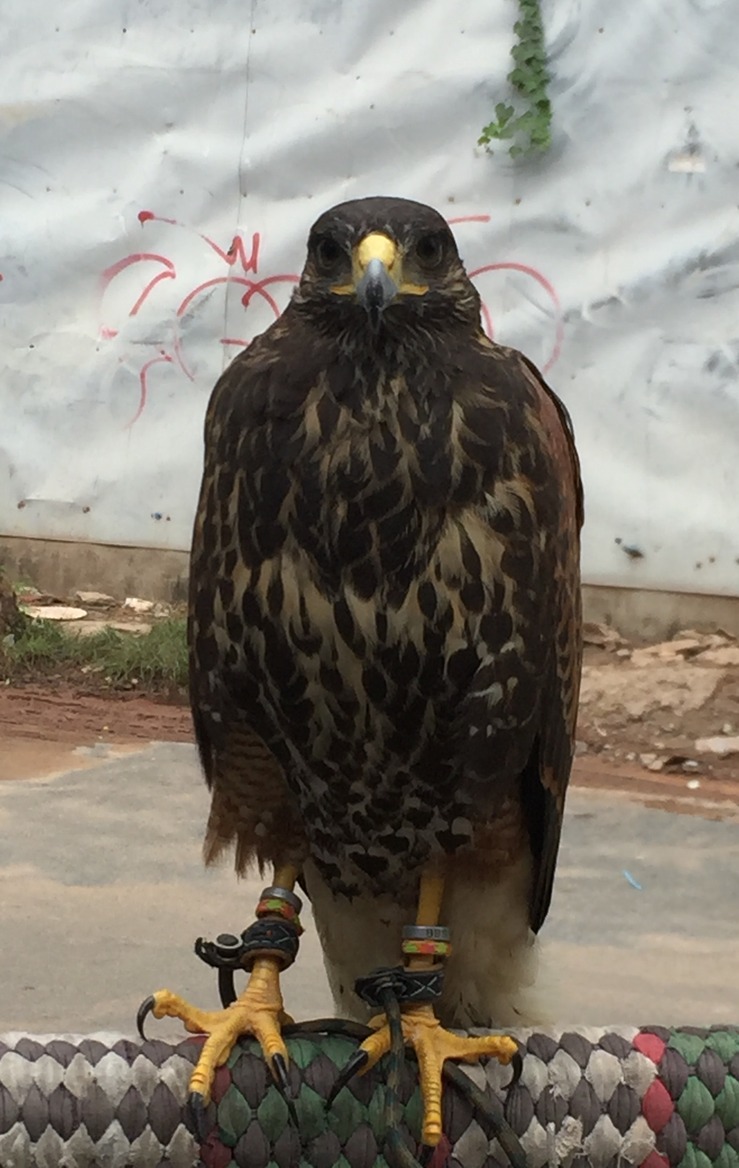
fredom is knowing how big your cage is
I suspect he’s found a sleeping policeman stretched across the road near the intersection on Hard Drive south of Tacoma where the young girl got blasted by the partially blind old retired man living on a pension going to the drugstore to get his wife’s prescription filled last winter as she walked her dog along Bride Sport Boulevard braving hard slashing winter squalls flying East across Budget Sound full of homeless derelicts and sexual offenders out on parole from Paradise prison where 2,500 convicts incarcerated for drugs, sexual crimes and murder repair bicycles.
They donate them to charity. They make furniture for $.26-36¢ per hour in a Classless IV state owned operated “tax reduction” industry producing chairs and tables doing draftsmanship, sewing, upholstery, laminating, cutting, measuring, finishing, sanding, packing, and shipping maple office materials near state hospitals for the criminally insane and military bases full of calibrated B-52 bombers, with Cobra attack helicopters collecting dust on runways in the city of Lakewood facing financial cutbacks in police states and garbage collection taxes due to voter initiatives, rising interest rates, trillion dollar debt, and a collapsing economy.
It was foggy with crumpled forgotten leaves next to the young girl’s broken life as her dog licked her hand trying to say, “It’s ok now, get up, let’s go home,” as drivers blasted their horns out of callous indifferent anger because they were late for dinner yakking on cell phones negotiating magnificent commercial deals with con people, scam artists, confidence men and sharks swimming below the surface of appearances looking for the key to financial consumer heaven impatiently pulling around innocent bystanders trying to glimpse the disaster inside the labyrinth without a center.
The heat from my last bitter cigarette says it’s too hot for smoking. I know all too well that chemicals in the smoke, such as nicotine, create growth factors causing scar tissue. The beta TGF§ is an autocrine cytosine - meaning once it is elevated due to smoking it creates its own synthesis and eventually forms tumors in a slow deadly process.
I accept my addictive habit as a genetic DNA snub or behavioral choice.
My fingers fly. Bird shadow mirror paper as harsh hot dry winds whip down the Willamette Valley.
Perspiration slides down creased faces as motivated men dig graves and hammer nails with machines in the heat of making it happen, making it perfect and serene in the superficial media controlled culture. They create fantasies of new promises and utopias surrounded by manufactured needs exceeding passionate desired appetites called Desire and Greed.
I sit in my fragile tree house living on the edge of somewhere else keyed into vibrating hammers striking nails home. In my tree house I put it down where it belongs. Chamber a word round, aim and fire. The American way is to fire first and aim later.
Lock and load crashing echoes through space, followed by another crashing bore expending taxpayer’s dollars and foundry worker finances.
I scream hot molten lead words.
My youthful naiveté led me across an ocean of innocent waves to hot humid heaven jungles.
I was born dead in Vietnam and slowly came to life. 1969.
I’ve missed sitting here doing this. Confronting my shadow, my primitive, instinctive nature is scary.
I want to get up stretch my long thin arms go for a run burning calories and fat molecules. I swallow air savoring the world.
I am too full of sorrow to eat anymore.
I need a cold drink, need to paint a watercolor or manipulate a digital image with Dada surrealism placing a dragonfly rippling silence with translucent wings inside a Japanese ZEN meditation garden with carefully raked oceans of sand.
I meditate on my breath and the process of death.
I forget how to type on mirrors received from Mongols along the Silk Road.
I whisper to myself, “I would rather do it well than badly, but I’d rather do it badly than not at all.”
Ten talons tear at twenty-six keys.
I need to stop people from dying.
I need a commitment-free lover to explore the vocabulary of touch.
My mirror is a hard reflection in my pale hands. I digest words, strings of vowels and consonants forming letters held together with cosmic ethereal portable imaginary glue invisible indecipherable delicate foreign symbols.
Faces blur in the heat of rotating emergency lights reflecting off a magic prism hearing a frantic 911 AMR plead for someone to get the IV going. Administering CPR to the child, I remember my sister, Martha Ann, 13, when she was dying from leukemia and needed life.
I follow procedure. I shake Martha Ann, screaming, “Help!” open the airway, look, listen and feel for a pulse. After two breaths I check the carotid pulse near her Adam’s apple, find the landmark on her chest and do CPR for 1 minute, pressing 1 - 1 1/2 inches deep. I do five compressions and administer a breath every five seconds.

Drenched by tears I look up as traffic swirls past us.
I resume CPR knowing I have, at the most, two minutes to help her. I know two things about this reality:
1) the dead can’t feel any pain and 2) they can’t talk.
Below me oral traditions echo through my heart-mind as nails sing, brushes excavate ancient papyrus. Camel hair caresses rice paper shovels and doors. Silver axes cut the forest down for small caskets.
“Look, it is one of us,” the Turkish tree said when the axe handle came into the forest. Slamming hammers beat nails into coffins.
I hum an old tune. Language is a virus. La-de-da.
Spinning emotional fire visions flow, associate, blend, dive and dance on point performing a plié at the barre.
Steeled letter keys strike hammers, blasting iron nails, merging into Maple, Ash, Cherry and petrified wood.
Iron forged edges bite hard earth releasing soft dust. Brushes reveal artifacts as conspiratorial alarm bells bing bang bong salutations at the end of a line.
A manual typewriter carriage slams home inside the middle way.
Buddhists say you should cultivate the perfect balance of wisdom and compassion.
If you have too much wisdom you are unfeeling, cold, like marble.
If you have too much compassion you become too sentimental.
I resume CPR.
Weaving A Life, V1
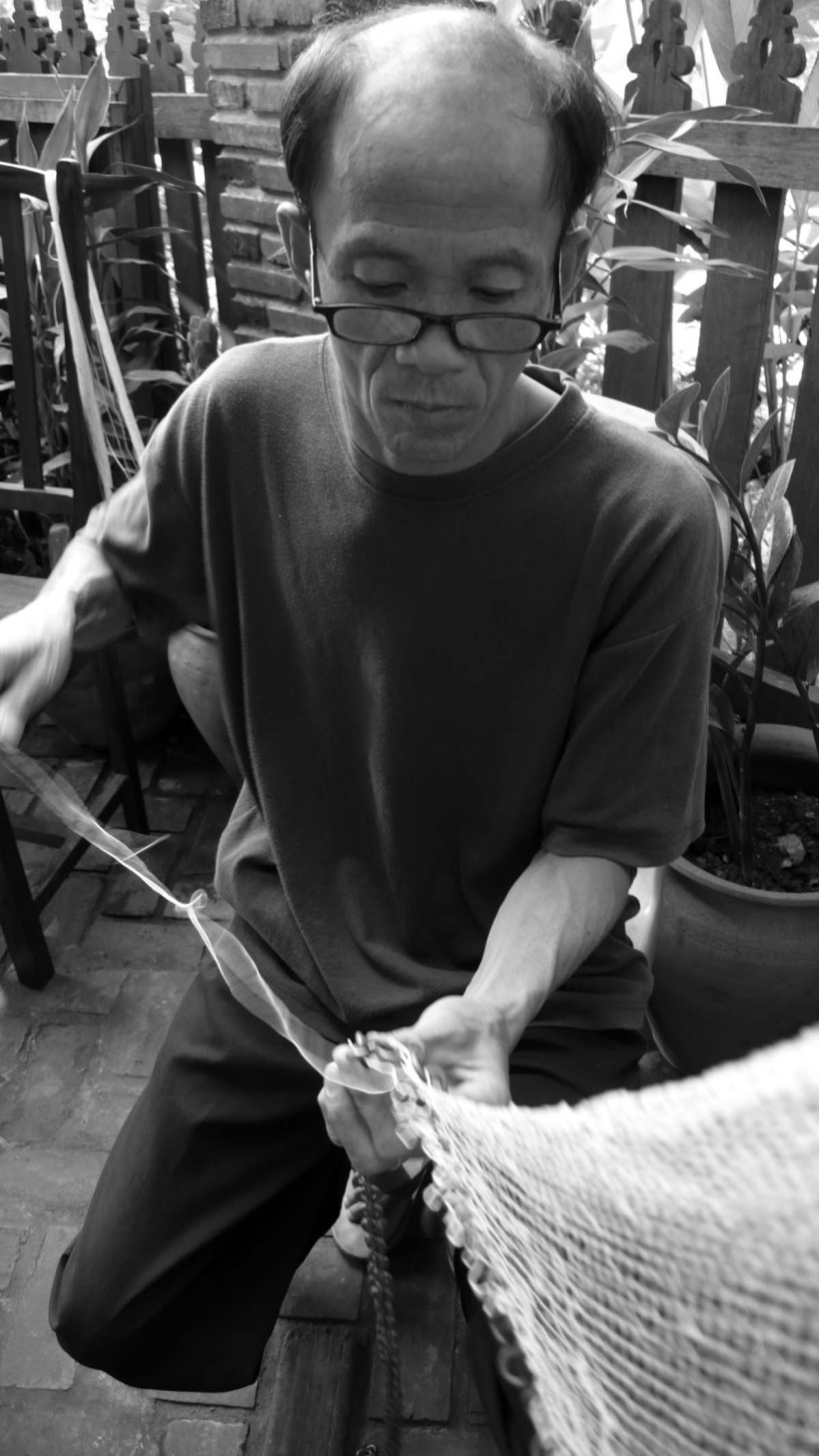
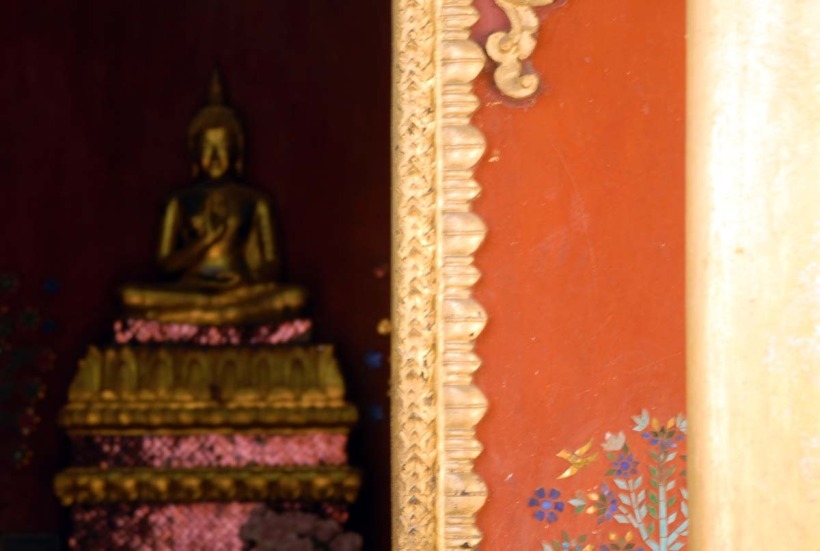






 Share Article
Share Article 




